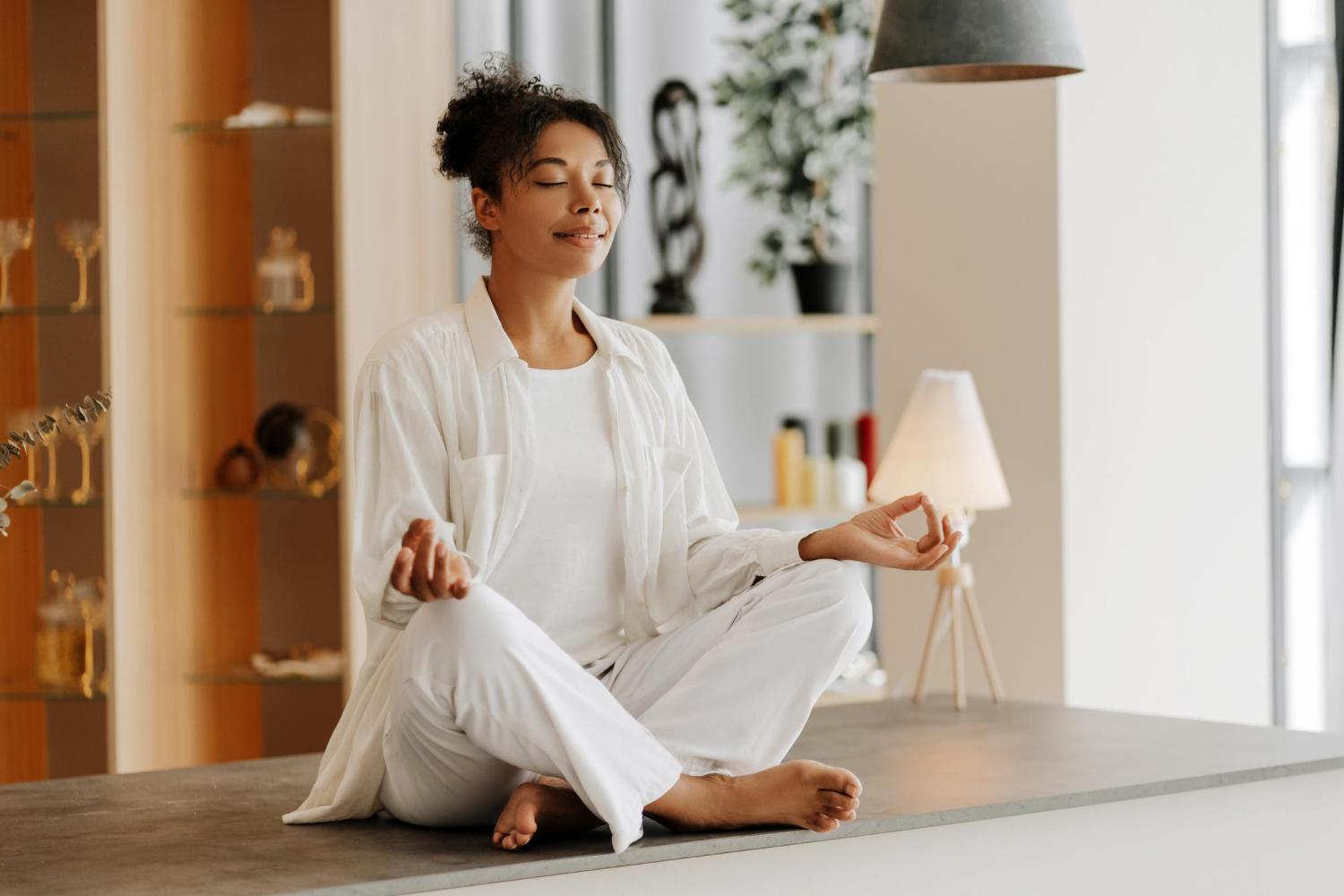Feeling socially awkward is something almost everyone has experienced at some point.
It can make conversations feel uncomfortable and leave you second-guessing what you say. The good news is that feeling awkward around others doesn’t have to be permanent.
Social skills can be learned and improved, just like anything else. With the right mindset and a few simple strategies, you can become more comfortable in social settings.
It’s not about being perfect, but about feeling more at ease and confident when talking to others.
Whether you’re in a group or having a one-on-one conversation, learning how to handle social interactions better will help you connect with people.
The tips in this guide will give you practical ways to start feeling less awkward and more natural around others.
1. Start Small and Build Confidence
Feeling socially awkward happens to a lot of people, especially in new or big groups.
Instead of diving into large social settings, try starting small. Focus on one-on-one conversations first.
Talking to just one person can feel way less intimidating. The more you practice, the easier it gets.
Think about the people you feel most comfortable around. Spend time with them and use those interactions as a way to build your social skills.
Slowly, you’ll gain the confidence to chat with new people without overthinking. Conversations with friends can help you understand what makes you feel more at ease.
It’s all about taking those small steps. Even brief exchanges, like talking to a barista or making small talk at work, can add up over time.
Little wins boost your confidence, making bigger groups feel much less overwhelming.
2. Work on Active Listening

A big part of feeling socially awkward comes from worrying about what to say next. But here’s a tip: focus on listening instead.
When you’re genuinely paying attention to someone else, your mind is less likely to spiral into self-conscious thoughts. Plus, people love it when they feel heard.
During a conversation, try to ask follow-up questions based on what the other person is saying. Instead of thinking about what you’ll say next, stay curious.
Ask yourself, “What do they mean by that?” or “Why did they mention that topic?” This way, the conversation becomes more natural, and the pressure to perform goes down.
Active listening also helps to build deeper connections.
People are drawn to those who show interest in what they have to say, so by being a good listener, you not only reduce your awkwardness but also leave a positive impression.
3. Accept That Awkwardness Happens
Everyone feels awkward sometimes, even people who seem super confident. The key is to not let it get in the way.
Instead of dwelling on a moment that felt awkward, remind yourself that it’s completely normal. No one is judging you as harshly as you might think.
The next time you catch yourself feeling uneasy, try to laugh it off or acknowledge it in a light-hearted way.
Saying something like, “Wow, I totally lost my train of thought,” shows that you’re human and comfortable enough to admit it. This can help you connect better with others because they’ve likely experienced the same thing.
By accepting that awkward moments happen to everyone, you take away their power.
You’ll start to realize that these moments don’t define you or the conversation. They’re just small blips in a much bigger picture.
4. Prepare a Few Go-To Topics
Feeling stuck in a conversation can fuel awkwardness. To avoid that, think about a few easy topics you can fall back on when the conversation hits a lull.
It could be something light, like asking about a person’s weekend or what shows they’re watching. Having a couple of go-to questions in your pocket helps keep things moving smoothly.
But don’t overthink it! The goal isn’t to plan out every word, just to have a general idea of where to steer the chat. Think of topics that you genuinely find interesting too.
That way, it’s not just small talk; it becomes an enjoyable exchange for both you and the other person.
Being prepared in this way can help ease your mind and give you something to rely on.
You won’t feel pressured to fill every silence, and that makes the conversation flow much better.
5. Be Yourself, Don’t Try to Impress

Trying too hard to impress others can make social interactions feel ten times more stressful.
You don’t need to put on a show or be someone you’re not. Just be yourself. People tend to appreciate genuine conversations more than forced ones.
Staying true to who you are can take the pressure off and make things feel less awkward.
It’s fine to have quirks or different opinions. Sharing those unique parts of yourself can make conversations more interesting.
The goal isn’t to be perfect, but to be real. Authenticity creates stronger, more meaningful connections, and the conversation will flow better.
There’s no need to stress about saying the “right” thing every time. Sometimes the most relaxed, natural conversations come from just being open and honest.
6. Don’t Fear Silence
Awkward silences don’t have to feel awkward. Pauses in conversation are totally normal and not something to panic about.
You don’t always have to fill every moment with chatter. It’s okay to take a breath and gather your thoughts.
Trying to fill every second with words can make the conversation feel rushed or forced.
Silence gives both people a moment to reflect on what’s been said and can make the interaction feel more relaxed. The key is to be comfortable with a little quiet. The conversation will naturally pick up again.
Remember, silence isn’t the enemy. It’s just part of normal communication, and once you accept that, conversations will start to feel smoother.
7. Use Body Language
Sometimes words aren’t the only way to communicate. Body language plays a huge role in making you feel more comfortable and approachable.
Smiling, making eye contact, and nodding can show others you’re engaged in the conversation, even if you’re feeling a bit shy inside.
Good posture helps too. Standing or sitting up straight sends the message that you’re confident, even if you’re not feeling it in the moment.
Leaning in slightly when someone is talking also shows interest, which can help you connect better without saying a word.
Small gestures like these can make a big difference. The more open and relaxed your body language is, the more at ease you’ll start to feel.
8. Don’t Overthink Everything You Say

Constantly worrying about what others think of your words makes socializing way harder than it needs to be.
People aren’t analyzing your every move. Most of the time, they’re just happy you’re having a conversation with them. So, it helps to stop second-guessing yourself.
Avoid replaying every conversation in your head later, thinking about what you could’ve said differently.
Overthinking just adds unnecessary stress. Instead, focus on enjoying the interaction. The truth is, most people are too busy thinking about themselves to scrutinize every word you say.
So, cut yourself some slack. Relax, go with the flow, and remind yourself that socializing is about connection, not perfection.
9. Focus on the Other Person
One easy way to stop feeling awkward is to shift the attention from yourself to the other person.
Instead of worrying about how you’re coming across, pay more attention to the person you’re speaking with.
Show curiosity. Ask them about their interests or experiences, and listen to what they say.
Doing this not only takes the pressure off of you but also helps the conversation flow naturally.
People usually enjoy talking about themselves, and it makes you seem more confident when you’re interested in them.
The best part is, you’ll come off as friendly and engaged without having to say much at all.
Focusing on the other person makes the interaction more enjoyable for both sides and takes your mind off feeling nervous.
10. Practice Small Talk
Small talk might not seem important, but it helps build confidence in social settings.
Getting good at small talk can make you feel more at ease in any conversation.
Simple questions like “How’s your day going?” or “What do you like to do for fun?” can start things off in a relaxed way.
Keep the conversation light, and avoid topics that might cause tension, like politics or controversial issues.
Focus on neutral topics like hobbies, TV shows, or recent news. The more you practice, the easier small talk becomes, and it can help break the ice in social situations.
Over time, small talk will feel more natural, and you’ll feel less pressure to come up with the perfect thing to say.
Related Articles
How To Read People Like a Pro: 8 Things To Focus On
How To Build Up Self-Confidence
11. Stay Positive and Relaxed

A positive mindset goes a long way in making social situations feel less awkward.
Instead of thinking about what might go wrong, focus on the good things that could happen.
Staying positive helps reduce nervousness and makes conversations more enjoyable.
Try to remind yourself that socializing is meant to be fun, not a test. Relaxing your body can also help your mind stay calm.
Take deep breaths, slow down your speech, and allow yourself to settle into the moment. The more relaxed you are, the easier it becomes to enjoy the conversation.
Being relaxed and positive not only helps you but also puts the people around you at ease. It creates a better vibe for everyone involved.
12. Learn to Laugh at Yourself
Everyone makes mistakes in conversations, and sometimes things don’t go as planned.
Learning to laugh at yourself in these moments helps you feel less awkward. Instead of stressing over a small slip-up, treat it with humor. It lightens the mood and shows confidence.
Nobody expects you to be perfect, and showing that you can laugh at yourself makes you more relatable.
For example, stumbling over words or saying something silly isn’t the end of the world.
Laughing it off shows that you’re comfortable with yourself, and that attitude will rub off on others.
Taking things less seriously reduces the weight of awkward moments and keeps conversations flowing smoothly.
13. Join Groups with Similar Interests
Engaging with people who share the same interests can take a lot of pressure off.
Whether it’s joining a club, taking a class, or being part of an online community, talking to people who enjoy the same things makes conversations easier.
Common interests create an instant connection and give you something to talk about right away.
Finding a group or hobby that excites you not only helps with social skills but also gives you more opportunities to practice.
Conversations flow more naturally when you’re discussing something you care about. Plus, you’re more likely to feel confident when you’re in an environment that feels comfortable.
Connecting with like-minded people is a great way to practice socializing without all the pressure.
14. Take Breaks When Needed
Sometimes social situations can be overwhelming, and that’s totally okay. Taking a short break during a social event can help you recharge.
Stepping outside for some fresh air or finding a quiet corner for a few minutes can make a huge difference.
Allow yourself to reset without feeling guilty about it. Socializing doesn’t have to be nonstop.
Giving yourself a moment to relax can help you return to the conversation feeling more refreshed and less awkward.
It’s perfectly fine to take a breather, especially if it helps you feel more comfortable.
Taking short breaks helps manage feelings of social anxiety and gives you the energy to continue interacting confidently.




